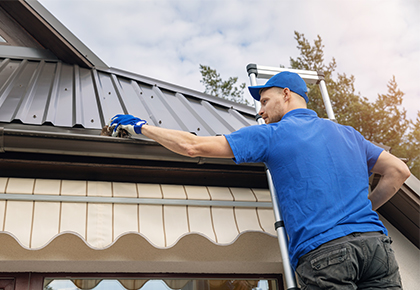Here's How Your Property Management Staff Can Prepare for a Hurricane
Download our Hurricane Guide today!
 In Florida, we have two seasons most of the country doesn’t: tourist season and hurricane season. One is much more enjoyable than the other! The official Atlantic hurricane season runs from June 1 to November 30, peaking in August and September. Rarely is there a storm before or after the season; some years, as when Hurricane Andrew hit in 1992, the first named storm isn’t until late August. It’s important to prepare for the hurricane season well ahead of time and no matter how nice the weather is. Preparation includes making sure that your property management staff know policies and procedures, as well as their individual roles, especially when a storm is on the horizon.
In Florida, we have two seasons most of the country doesn’t: tourist season and hurricane season. One is much more enjoyable than the other! The official Atlantic hurricane season runs from June 1 to November 30, peaking in August and September. Rarely is there a storm before or after the season; some years, as when Hurricane Andrew hit in 1992, the first named storm isn’t until late August. It’s important to prepare for the hurricane season well ahead of time and no matter how nice the weather is. Preparation includes making sure that your property management staff know policies and procedures, as well as their individual roles, especially when a storm is on the horizon.
Edwin Lugo, vice president of the South Florida High-Rise Division of FirstService Residential, says, “My team and I begin working with boards as early as possible to make sure that everyone understands emergency plans for storm season well before it starts. It’s important to share the plan at board meetings and then with the community’s residents, making sure everyone knows what to do and what everyone else is doing at each stage of a tropical event.”
What are property management staff responsible for during a tropical storm or hurricane watch or warning?
Lugo says it’s important for residents to know that property management staff are not able to or responsible for helping secure individual homes. “Staff need to focus on high-level issues like making sure that drains in the street and parking areas are clear. Is there debris that can block drains and cause flooding? Are gutters clear?” he says. “They need to be safeguarding common areas, including bringing in objects that can become projectiles and putting up building shutters and placing sandbags. A lot of our doors and gates have motors, magnetic strips or electronic locks, and unfortunately, they sometimes get forgotten in storm preparation. They have to be secured so that they don’t fly open or get held in the closed position if the power fails.”
If a storm watch is announced, property management staff will communicate this information immediately and send notifications to all residents, reminding them of the community’s emergency plan and what they should do at each stage. That communication should include shelter locations, evacuation protocols and information about what the association is doing to protect the community as a whole.
Your management company must implement effective communication, before and after the storm.
An effective mass communication system, like FirstService Residential Connect, lets you and your management team send email, text messages or phone calls en masse with important information and warnings,” said Jennifer Lasseter, director of Property Solutions at FirstService Residential. The system is invaluable post-storm, because some forms of communication can be received and delivered when others cannot due to storm damage.
If you can’t communicate through electronic devices, post paper notices in as many places as you can throughout the community or building. Don’t forget to include seasonal residents in all digital communications!
Information should be provided to all residents including:
-
Critical warnings, e.g. if drinking water needs to be boiled or if the elevator is out of service
-
Frequent updates about what the board and management company are doing to clean up, repair and rebuild
-
Other helpful resources, i.e. waste management contact information, and location information for operational gas stations and grocery stores
-
Once electricity, phones and internet service are restored, make use of digital communications – email, community website, social media, online newsletters, and resident alert system – to deliver immediate, urgent information to your community.
-
Rely on your property management company’s 24/7 customer service center to report and resolve any issues or emergencies.
A great management company will update the board at least daily on the progress of cleanup and repair work as well as any important updates within the community. Communities should be provided with information about what happened the day of the storm, what was anticipated for the following day and the status of the community.
What is proper staffing in the event of a storm?
“Our teams know they are the last to leave when a storm is scheduled to hit and the first to return once conditions are safe,” Lugo explains. “But that doesn’t mean everyone needs to be on the property at once.”
The board and staff should work together to make sure that the right people are handling the correct jobs to get everything accomplished as quickly and safely as possible, so staff have time to get home. An effective chain of command needs to be established so that contradictory orders aren’t given. Be sure to cross train team members in the event personnel are stuck after the storm and unable to get to the property. If the situation allows, a staff point person can remain on site through the weather event. Some boards will designate members to stay in the community (barring a mandatory evacuation order) and serve as “first responders.” They can, once the storm is over, take a first look at the property, make sure doors and gates are open and offer immediate assistance while waiting for staff and others to arrive.
How can you make sure that your property management staff are properly trained on what to do as a storm approaches and after?
It’s important to work with your county emergency management teams, Lugo says. They will know if your community is in a mandatory evacuation zone, your risk for flooding and other hyper-local information. Conduct mock drills with your staff before hurricane season starts. Practice sandbagging, if that’s a recommendation of your emergency management office. Look at your county emergency management lists of recommended supplies and stock up. Lugo also suggests collaborating with neighboring community boards to share best practices and knowledge. Your training and planning need to be specific and property-driven. What works in a high-rise on Miami Beach might not be appropriate in a townhome community in Orlando. A professional property management company will have the experience and resources to help make sure your community has a plan in place and that your staff is properly trained.
Hurricanes can be devastating, but proper preparation is the key to getting through them with the least damage possible. That includes having a plan for staffing and making sure that your team is properly trained. To learn more about emergency planning and preparation, contact FirstService Residential today.

Watch the full video
Is your community association prepared for hurricane season? Access our Hurricane Preparedness video.
Watch now